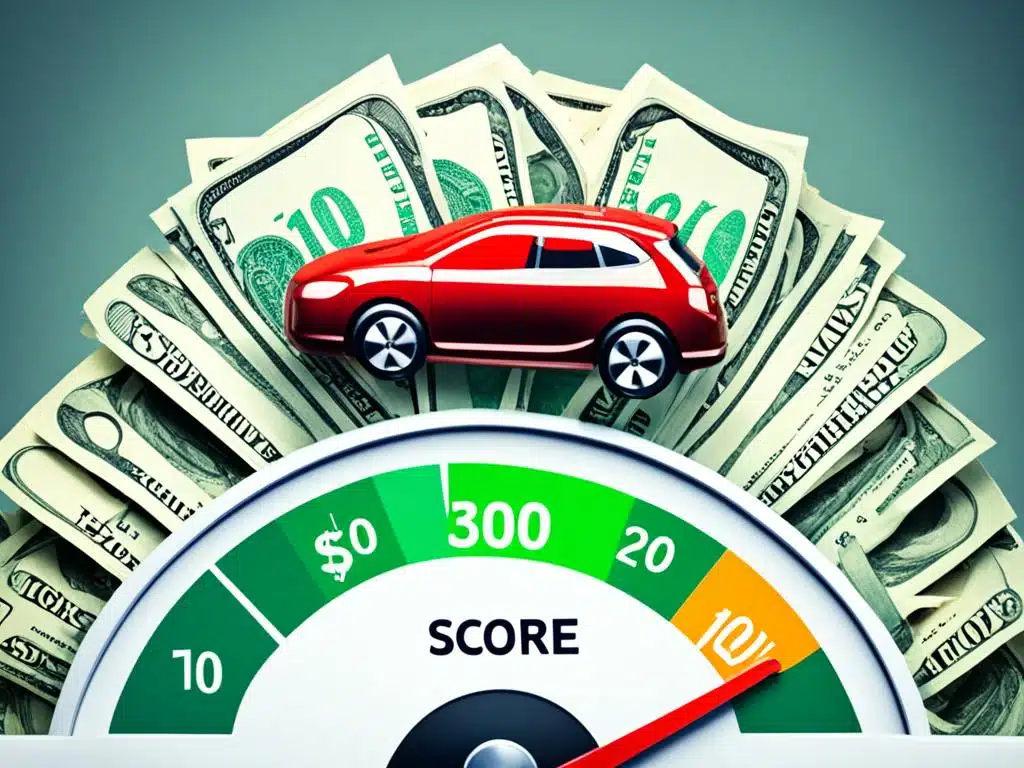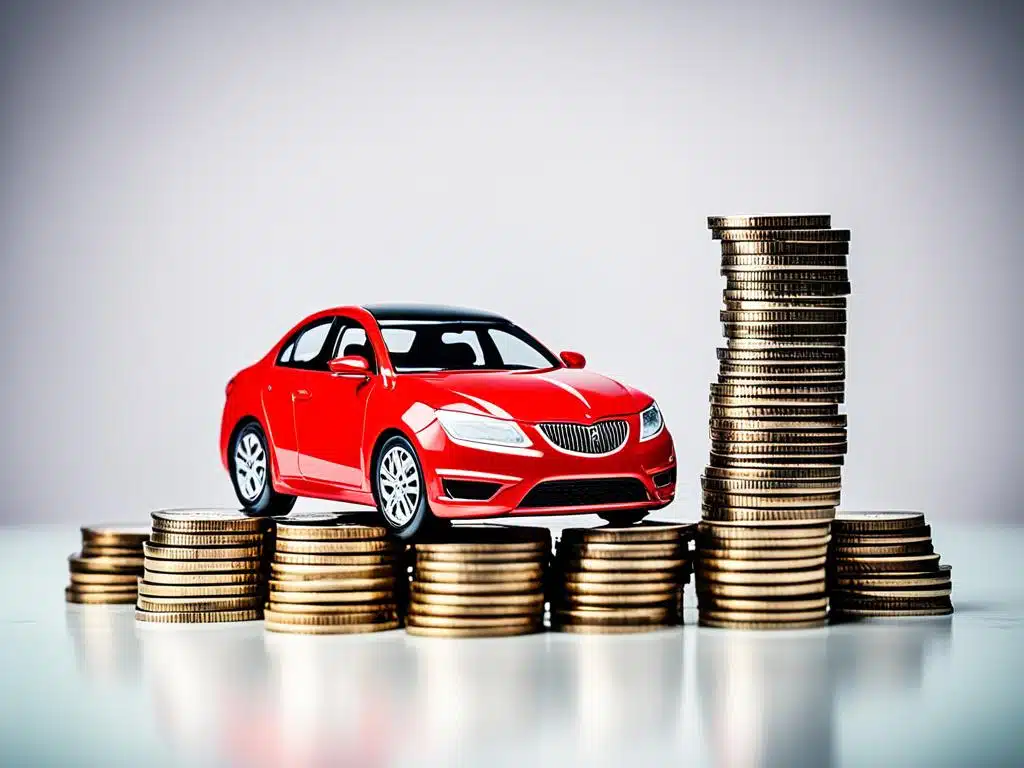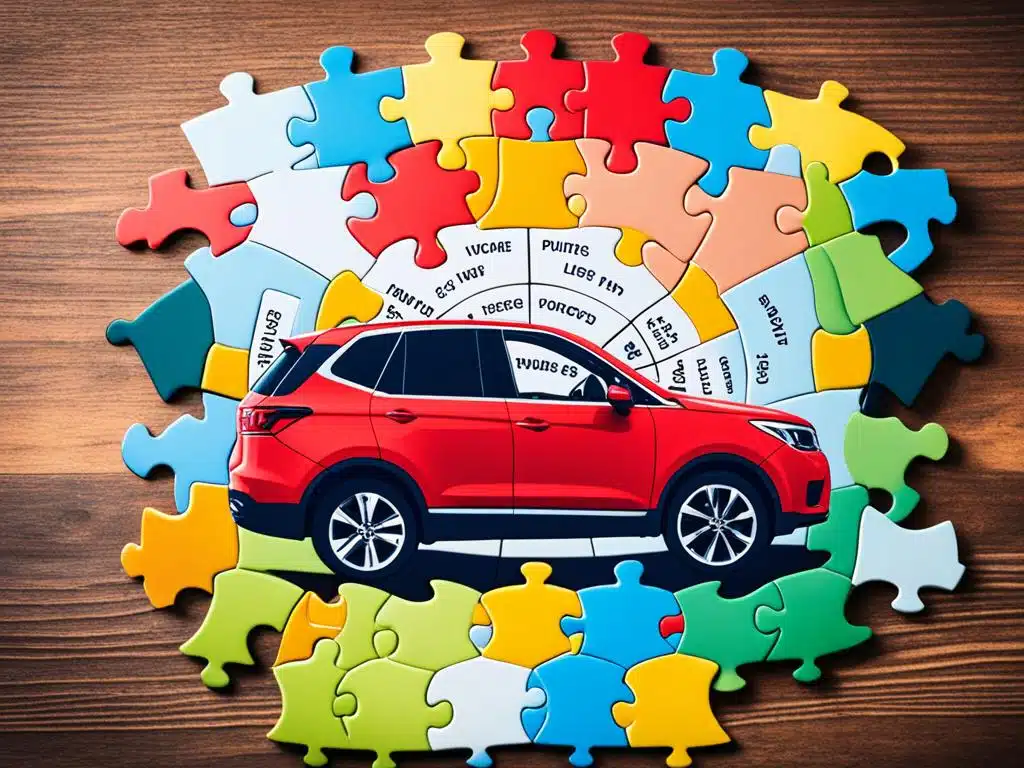Buy a Car on Finance : Buying a car is a major decision, and there are various options available for financing. It is important to choose the best option that suits your needs and financial situation. In this article, we will explore smart tips for buying a car on finance, including different financing options and things to consider when shopping for the best car finance deals.
Key Takeaways:
- Consider different financing options when buying a car on finance.
- Assess your credit score to access the best deals and interest rates.
- Shop around and compare different finance deals to get the best rate.
- Evaluate your affordability and choose the right car loan term.
- Communicate with your finance company if you encounter difficulties in making payments.
Buying a Car with Cash
If you’re looking for the cheapest and simplest way to buy a car, paying for it in cash is the way to go. When you purchase a car with cash, you become the sole owner of the vehicle, giving you the freedom to sell it or make modifications according to your needs. Unlike financing options, buying a car with cash doesn’t impact your credit report, providing you with financial flexibility.
However, before deciding to buy a car with cash, it’s important to consider the availability of funds to cover the running costs of the car. This includes expenses such as insurance, maintenance, and unforeseen repairs. It’s crucial to have a budget in place and ensure that you have enough savings to manage these costs effectively.
When purchasing a car with cash, you eliminate the need for a finance provider. This means you won’t have to deal with interest rates or monthly payments. Additionally, you have the ability to negotiate a better deal with the seller, as you have immediate funds available.
“Buying a car with cash provides financial freedom and eliminates the need for a finance provider.”
Furthermore, buying a car with cash allows you to have full ownership of the vehicle from the moment of purchase. This means you can sell the car whenever you choose, without any restrictions or obligations to a finance company. It also gives you the freedom to modify the car to suit your preferences, without needing approval from a finance provider.
While buying a car with cash offers numerous advantages, it’s essential to carefully evaluate your financial situation and ensure you’re comfortable with the immediate outlay. Additionally, it’s important to consider the potential depreciation of the car’s value over time. If you decide to sell the car in the future, you may not be able to recoup the full amount you paid.
| Pros | Cons |
|---|---|
| Full ownership of the vehicle | Potential depreciation of car value |
| No impact on credit report | Immediate outlay of funds |
| Freedom to sell or modify the car | Possible limitations on budget |
Overall, buying a car with cash is a viable option if you have the available funds and want to avoid financing. It provides you with ownership, flexibility, and control over the vehicle. However, it’s important to carefully assess your financial situation and consider the long-term implications before making a decision.
Credit Scores and Car Finance
When buying a car on finance, your credit score plays a significant role in determining the interest rates and available financing options. A good credit score allows you to access the best deals and secure lower interest rates. It is crucial to assess your financial capacity and ensure that you can comfortably make the monthly repayments for the full term of the credit agreement.
If you encounter difficulties in making payments, it is important to communicate with your finance company to discuss possible solutions. They may offer options such as restructuring your repayments or providing temporary relief to help you manage your financial obligations.
Why Credit Scores Matter
Your credit score reflects your creditworthiness and is based on various factors such as your payment history, outstanding debts, and length of credit history. Lenders use this information to evaluate the risk associated with lending you money. A higher credit score indicates a lower risk, making you an attractive borrower for car finance.
“A good credit score allows you to access the best deals and secure lower interest rates.”
When you have a good credit score, you can enjoy benefits such as:
- Lower interest rates: Lenders are more likely to offer you lower interest rates, reducing the overall cost of car finance.
- Flexible repayment terms: A good credit score gives you more negotiating power when it comes to the repayment terms. You can request longer loan periods or shorter ones depending on your preferences.
- Higher loan approval rates: Lenders are more inclined to approve your loan application when you have a good credit score, allowing you to have a greater choice of car finance options.
Having a good credit score not only helps you secure car finance but also opens up doors for other types of loans and better financial opportunities in the future.

Building and Maintaining a Good Credit Score
If you have a poor credit score or no credit history, there are steps you can take to improve your creditworthiness:
- Make timely payments: Pay your bills and debts on time to establish a positive payment history.
- Keep credit utilization low: Aim to use only a small portion of your available credit to maintain a good credit utilization ratio.
- Manage debts responsibly: Avoid taking on too much debt and ensure that you can comfortably manage your repayments.
- Check your credit report regularly: Review your credit report for any errors or discrepancies that could be impacting your score and address them promptly.
By taking these steps, you can gradually improve your credit score and increase your chances of obtaining favorable car finance terms in the future.
In Summary
Your credit score is a crucial factor when it comes to buying a car on finance. A good credit score can help you secure better interest rates, flexible repayment terms, and higher loan approval rates. It is important to assess your financial capacity and make sure you can comfortably meet the monthly repayments. If you encounter difficulties, communicate with your finance company to explore possible solutions. Building and maintaining a good credit score is key to accessing the best car finance deals and opening up future financial opportunities.
Buying a Car Using a Personal Loan
When it comes to buying a car on finance, another viable option is obtaining a personal loan from a bank or finance provider. This allows you to secure the funds needed to purchase the car and gives you the advantage of owning the vehicle outright from the start of the loan.
One of the key factors to consider when applying for a personal loan is your credit rating. A good credit rating can secure you a competitive interest rate, ensuring that you get the most favorable terms for your loan. It’s worth noting that some lenders may offer a fixed interest rate, providing stability and predictability in your monthly repayments.
When considering a personal loan for car financing, it’s crucial to shop around and compare the Annual Percentage Rate (APR) offered by different providers. This helps you ensure that you’re getting the best deal that suits your financial circumstances and needs.
With a personal loan, you have the freedom to sell or modify the car as desired since you own it outright. This flexibility can be advantageous, especially if you anticipate making changes to the vehicle or plan to sell it in the future.
Benefits of Buying a Car Using a Personal Loan:
- Owning the car outright from the start
- Potential for competitive interest rates
- Flexibility to sell or modify the vehicle
Before finalizing your decision, it’s important to assess your financial situation, taking into account factors such as your monthly budget and overall affordability. This helps ensure that the loan repayments are manageable for you.
In conclusion, using a personal loan to purchase a car can be an effective way to finance your vehicle. By considering your credit rating, interest rate options, and comparing different lenders, you can make a well-informed decision that aligns with your financial goals.

Hire Purchase (HP) to Finance a New Car
Hire purchase (HP) is a popular financing option for purchasing a new car. With HP, you secure a loan against the car and make fixed monthly payments over a specified period. This allows you to enjoy the car while gradually paying off its cost.
To initiate an HP agreement, you typically need to pay a deposit upfront. The deposit amount can vary and is usually negotiable with the car dealer. It’s important to consider the deposit required and ensure it fits within your budget.
Once the deposit is made, you will agree to a repayment plan with the car dealer, which includes fixed monthly payments over an agreed-upon term. These monthly payments cover the cost of the car, plus any interest or fees applicable under the financing agreement.
One of the advantages of HP is the flexibility it offers in terms of repayment. The car dealer usually arranges the financing, making it a convenient option. Additionally, the repayment terms can be tailored to suit your financial situation, making it easier to manage your monthly payments.
It is crucial to make your monthly payments on time to avoid the risk of repossession by the finance company. Failure to meet the payment obligations could result in the car being taken back, and you losing both the vehicle and the money you have already paid towards the HP agreement. Therefore, it’s essential to consider your financial stability and ensure you can comfortably afford the monthly payments before entering into an HP deal.
Overall, hire purchase is a popular financing option that allows you to own a new car while spreading the cost over time. It provides flexibility in terms of repayment and can be arranged conveniently through the car dealer. However, it’s important to carefully assess your financial situation and make timely payments to avoid any negative consequences.

Personal Contract Purchase (PCP)
Personal Contract Purchase (PCP) is a popular car finance option that offers lower monthly payments compared to other financing methods. With PCP, you make a deposit and monthly payments based on the difference between the car’s price and its predicted value at the end of the agreement.
At the end of the term, you have various options to consider:
- Returning the car
- Using the resale value towards buying a new car
- Paying the resale value to keep the car
It is essential to carefully consider the terms and conditions of the agreement and any additional costs, such as exceeding mileage or damage charges.
Advantages of PCP:
“PCP allows for lower monthly payments, making it an attractive option for those looking for more affordable car finance.”
Disadvantages of PCP:
“Extra costs may arise if you exceed the agreed mileage or if the car sustains damage beyond normal wear and tear.”
Choose PCP if you are looking for a more budget-friendly car finance option, but make sure to carefully review the terms and conditions to avoid any unexpected costs.
| Personal Contract Purchase | Hire Purchase | Personal Loan | |
|---|---|---|---|
| Monthly Payments | Lower | Higher | Variable |
| Ownership | Optional | Once final payment is made | From the start |
| Flexibility | Various end-of-term options | No flexibility | No flexibility |
| Additional Costs | Mileage and damage charges | N/A | N/A |

Using a Credit Card to Buy a Car
Using a credit card to buy a car can provide additional benefits and purchase protection, especially under section 75 of the Consumer Credit Act. However, it’s important to consider certain factors such as interest rates and credit limits before opting for this finance option.
While credit cards offer convenience and flexibility, they often come with higher interest rates compared to other financing methods. It’s crucial to be aware of these rates and understand how they may impact the total cost of your car purchase over time. It may be wise to pay off the balance within the specified timeframe to avoid accruing excessive interest charges.
Furthermore, it’s worth noting that not all car dealers accept credit card payments. Some may charge extra fees for using a credit card, which can add to the overall cost of the car. Therefore, it’s important to carefully evaluate and weigh these factors before deciding to use a credit card for car financing.
“Using a credit card for car financing can be a convenient option, but it’s crucial to consider the interest rates and fees involved to make an informed decision.”
To help you better understand the potential costs associated with using a credit card to buy a car, here is a table detailing some hypothetical interest rates and the corresponding interest charges over a 12-month period:
| Interest Rate | Car Purchase | Interest Charge |
|---|---|---|
| 15% | £20,000 | £3,000 |
| 18% | £15,000 | £2,700 |
| 20% | £10,000 | £2,000 |
As you can see from the table, higher interest rates can significantly increase the total cost of your car purchase. It’s important to factor in these potential charges and carefully assess whether using a credit card is the most cost-effective option for you.
Lastly, it’s worth mentioning that using a credit card for car financing can offer certain advantages, such as purchase protection. Under section 75 of the Consumer Credit Act, if you make a purchase with a credit card that costs between £100 and £30,000, you are protected if something goes wrong with the purchase. This protection ensures that the credit card provider shares liability with the seller, giving you an added layer of security and recourse in case of any issues with the car.
Overall, using a credit card to buy a car can be a viable option, but it’s important to carefully consider the potential costs, interest rates, and purchase protection benefits. By evaluating these factors, you can make an informed decision that aligns with your financial goals and needs.

Using Peer-to-Peer Loans to Fund a New Car
When it comes to financing a new car, peer-to-peer loans offer an alternative option that bypasses traditional banks and building societies. Also known as social lending, peer-to-peer loans involve borrowing or lending money directly between individuals through online platforms. This allows borrowers to secure loans for purchasing their dream cars without the need for a conventional financial institution.
One of the key advantages of peer-to-peer loans is the potential for competitive interest rates. The interest rates offered on these loans are often based on the borrower’s credit score, meaning individuals with a good credit history may be able to secure more favorable rates. Lower interest rates can lead to significant savings on overall loan costs, making peer-to-peer loans an attractive option for car financing.
Another benefit of peer-to-peer loans is the flexibility they offer in terms of repayment. Borrowers can often negotiate repayment terms that suit their financial circumstances. Whether you prefer shorter loan terms or longer ones depending on your budget, peer-to-peer lending platforms can accommodate a range of repayment options for buying a car.
Also Read : Understanding What Is Finance Charge Explained
However, it is important to conduct thorough research and compare rates offered by different peer-to-peer lenders before committing to a loan. It’s always wise to browse reputable online platforms and carefully review the terms and conditions of each lender to ensure you are getting the best deal possible.
“Peer-to-peer loans provide an alternative financing option for individuals seeking to buy a new car. With competitive interest rates and flexible repayment terms, these loans can offer a viable solution for car financing.”
Here’s a brief comparison of two popular peer-to-peer lending platforms for car loans:
| Lender | Interest Rate | Repayment Terms | Loan Amount |
|---|---|---|---|
| Platform A | 4.5% – 6.2% | 12 – 72 months | £1,000 – £50,000 |
| Platform B | 3.8% – 5.5% | 12 – 60 months | £2,000 – £35,000 |
As you can see from the table above, there can be variations in interest rates, repayment terms, and loan amounts offered by different peer-to-peer lending platforms. Therefore, it’s crucial to assess which platform aligns with your specific car financing needs and financial capabilities.

Conclusion
When buying a car on finance, it is crucial to consider several factors to make an informed decision. Start by evaluating your credit score, as it significantly impacts the available financing options and interest rates. Having a good credit score can help you access the best deals and lower interest rates.
In addition to your credit score, carefully assess your affordability and choose the right car loan term. Determine how much you can comfortably afford to pay each month and consider the total cost of the loan, including interest and any additional fees. This will ensure that you can meet the monthly repayments without compromising your financial stability.
Furthermore, shopping around is essential to secure the best car finance deal. Compare different finance offers from various lenders, considering not only the interest rates but also the terms and conditions of the agreement. By dedicating time to research and comparison, you can find the most suitable loan terms and affordable financing options.
Follow these car financing tips and tricks to make the most of your car loan journey. With careful consideration of your credit score, affordability, loan terms, and comparison of finance deals, you can purchase your dream car while maintaining financial stability.
FAQ
Q: How can I finance a car?
A: You can finance a car by either using a car finance calculator to compare fixed monthly payments or by seeking help from a credit broker to find the best finance options for your next car.
Q: What is the total amount payable when financing a car?
A: The total amount payable includes the sum of the initial deposit, followed by regular monthly payments and any interest accrued over the loan period.
Q: What is the difference between HP and PCP when financing a car?
A: HP (hire purchase) requires equal monthly payments, while PCP (personal contract purchase) offers the flexibility of lower monthly payments with the option to purchase the car at the end of the contract.
Q: Will financing a car affect my credit file?
A: Yes, when you apply for car finance and car credit, the lender will run a hard credit check to assess your creditworthiness, which may impact your credit file.
Q: How much can I borrow to finance a car?
A: The amount you can borrow to finance a car depends on your credit score, income, and the lender’s assessment, which will determine how much you can afford to repay.
Q: Are there finance options available for bad credit car buyers?
A: Yes, some providers offer bad credit car finance options, but these may come with higher interest rates and stricter terms.
Q: What is the best way to compare finance options for cars?
A: It’s best to use a finance calculator to compare fixed monthly payments and the total amount payable, helping you make an informed finance decision when buying your next car.
Q: What is car finance and how does it work?
A: Car finance allows you to spread the cost of buying a car by borrowing the money and paying it back over time, usually with interest. There are various types of car finance such as PCP finance, HP finance, and personal loans, each with their own terms and conditions.
Q: How can I apply for car finance?
A: To apply for car finance, you can either approach a car dealership that offers finance options or directly approach a bank or financial institution that provides car loans. There are also online platforms where you can apply for car finance and get a quick decision.
Q: What are the different types of car finance available?
A: The types of car finance include Personal Contract Purchase (PCP) finance, Hire Purchase (HP) finance, and personal loans. Each type has its own benefits and considerations, so it’s important to understand the differences before choosing the right one for you.
Q: How do I calculate my monthly payments for car finance?
A: You can use a finance calculator to estimate your monthly payments based on the loan amount, interest rate, and term of the finance agreement. This will give you an idea of how much you need to budget for your car finance monthly payments.
Q: Can I get car finance for a used car?
A: Yes, you can apply for car finance to purchase a used car. Many lenders offer finance options for used cars, and you can choose the right deal based on the age and mileage of the car you want to buy.
Q: How does applying for car finance affect my credit score?
A: When you apply for car finance, the lender may conduct a hard credit check, which can temporarily lower your credit score. It’s important to be mindful of multiple credit applications as they can negatively impact your credit profile. Some brokers may offer soft credit checks initially to provide an indication of your eligibility without affecting your credit score.
Q: What happens at the end of a finance agreement for a car?
A: The options at the end of a car finance agreement may vary based on the type of finance you’ve chosen. With a PCP finance agreement, you can choose to hand the car back, pay a final balloon payment to own the car, or use the car’s value as a deposit for your next car. With HP finance, once you’ve made all the agreed repayments, the car is yours to keep.
Q: How can I find the right deal for car finance?
A: To find the right car finance deal, you can use a leading car finance broker who has a panel of lenders and can help you compare the available options. It’s important to consider the representative APR, total cost of credit, and monthly instalments to ensure you’re getting the best deal for your next car.
Q: What are the different types of car finance options available?
A: There are various types of car finance options such as PCP finance, HP finance, and car finance through a broker.
Q: How does car finance work?
A: Car finance allows you to spread the cost of a new or used car by borrowing the money and paying it back in monthly instalments with interest.
Q: What is the process to apply for car finance?
A: You can apply for car finance by filling out an application form either online or at a dealership, providing details about your financial situation.
Q: How do I calculate the monthly payments for car finance?
A: You can use a finance calculator to determine the monthly payments based on the total amount, interest rate, and duration of the finance agreement.
Q: Can I get car finance for a used car?
A: Yes, car finance is available for both new and used cars, allowing you to finance the purchase of a second-hand vehicle.
Q: What steps can I take to find the right car finance deal for my next car?
A: You can compare different finance options, understand the total cost of credit, and work with leading car finance brokers to find the right deal for your next car.
Q: How does applying for car finance affect my credit score?
A: When you apply for car finance, the lender may conduct a hard credit check, which can temporarily impact your credit score. However, this can be minimized by using a soft credit check initially.
Q: What happens at the end of a car finance agreement?
A: Depending on the type of finance, you may have the option to hand the car back, make a final payment to own the car, or use the car’s value as a deposit for your next finance agreement.









